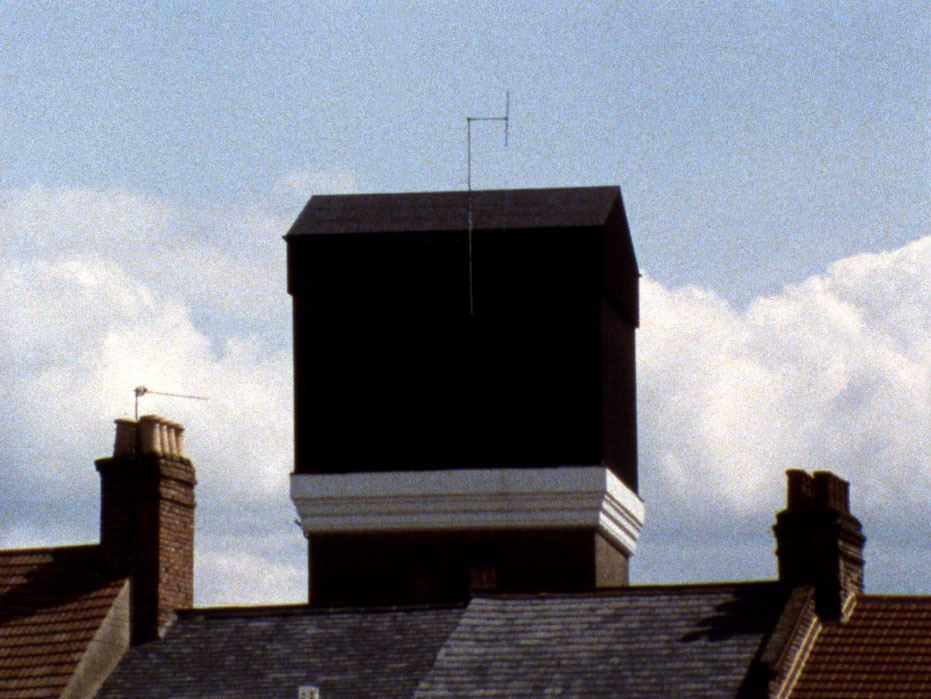
The Black Tower
John Smith is an essential figure in the evolution of twentieth-century European experimental cinema. His work is often transgressive, sometimes voyeuristic, and always undermines the traditional framework of filmmaking. He also frequently pushes boundaries in terms of genre, ranging from comedies to horror.
An example of Smith's existential horror is The Black Tower, which centres on a man convinced that a black building is following him around. The film goes to the heart of Smith's interests: the ‘image’ as filmic fact that is constantly questioned and, moreover, undermined by language and sound(track).
In an interview, Smith himself said, “I was surprised when I first showed the film how much people got drawn into the narrative aspect of it, because for me, the story wasn’t the most important part. What was important was that the story was a pastiche of a horror, or mystery or science fiction, which to some degree is kind of immersive. I wanted to draw the viewer in, to get them involved in the psychology, but it was very light hearted and tongue-in-cheek and playful.”
What the titular Black Tower exactly symbolises is therefore up to the audience. An illustration of depression, for example? A commentary on the Big Brother society? Or an allegory for gentrification? All plausible.

